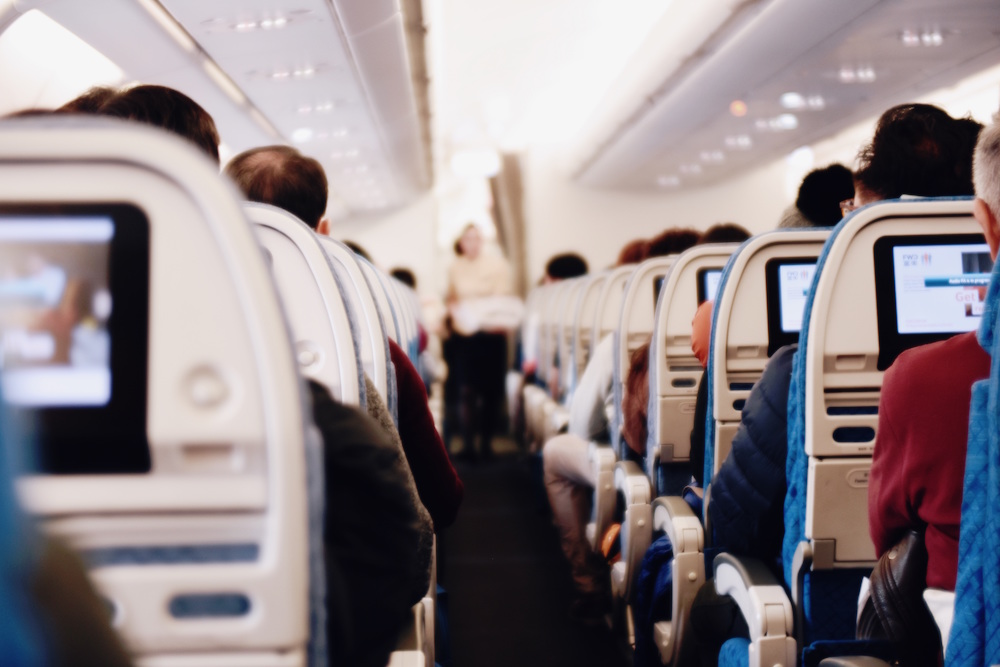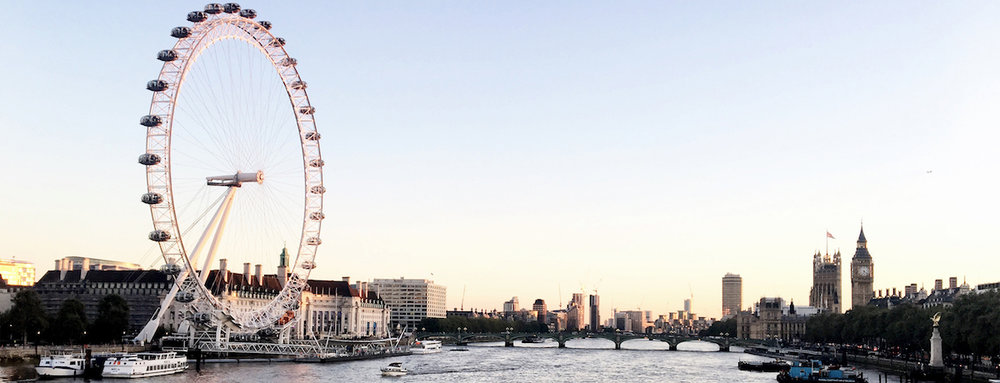Why You Get Jet Lag (and 13 Ways to Prevent it!)
/
Long haul flights can create a number of issues and discomfort for your body and mind while traveling. Not only does this make us uncomfortable and cranky, but it can affect us for days, even weeks, after we land. Long story short, jet lag can really negatively impact our experience while traveling, and is best to avoid it!
What Is Jet Lag?
Jet lag is a temporary disorder known to cause fatigue and insomnia, but it can also create more severe symptoms like anxiety, constipation, diarrhea, headaches, dizziness, and irritability.
Jet lag is most prominent when you travel across several time zones. Flying east has a greater likelihood of jet lag because you "lose" time.
Jet lag can last for days after you land, it's estimated to take one day to recover from traveling 1-2 time zones. For example, if you're traveling from California to the Maldives (through 13 time zones), it could take you 6-13 days to recover from jet lag! Nobody wants to spend a whole week feeling irritable or tired!
When traveling around the world, there isn't a day to waste feeling less than optimal!
What Causes Jet Lag
Jet lag is caused by a disruption of your internal body clock. Jet lag is effected by our circadian rhythm which are the 24 hour cycles in our biochemical, physiological and behavioral processes of our bodies.
The part of your brain called the hypothalamus controls your circadian rhythm.
This "clock" is in charge of things like hunger, thirst, and sleep. It also regulates body temperature, blood pressure, hormones and glucose in the blood stream.
This biological clock is set by external factors such as light-dark cycle of day and night, .
Pre-flight conditions like stress, sleep deprivation and poor sleep habits can exacerbate jet lag. As does flight conditions, immobility and cramped seating, monotony of travel, altitude, cabin pressure, and airline food. Age and over-use of alcohol on long flights can worsen symptoms of jet lag as well.
As travelers, we are very interested in the reasons why we get jet lag and how we help prevent the symptoms from affecting our travels.
How to Prevent Jet Lag
1. Stay in Shape Before the Flight | Treat Your Body Right
Eat clean, exercise regularly, keep hydrated, and get plenty of rest.
2. De-Stress | Treat Your Mind Right
Stay calm in the days leading up to your flight by getting your work done before the flight instead of leaving it for the last minute. Meditate, journal, get a massage, or massage your fascia with a trigger point roller (my favorite!)
Preexisting stress and sleep deprivation play a role in your jet lag.
tip: Meditate or practice yoga before the flight to help keep you calm, centered and life in perspective!
3. Avoid Getting Drunk
I'm a wine drinker so I can't recommend not drinking anything before or on your flight, that would be very hypocritical of me. However, we know alcohol causes dehydration.
Additionally, alcohol impacts your body more in the air than on the ground. One glass in the air has the effect of two to three on the ground. So limit your alcohol consumption to an appropriate amount for you, and most importantly stay hydrated!
tip: Drink (and eat!) lots of water. The rule is half your body weight in ounces at the bare minimum, so try to drink more than that.
4. Avoid Caffeine
Caffeinated beverages also cause dehydration. Before and during your flight choose water or an herbal tea instead of coffee, soda or juice.
5. Treat Your Digestive System Right
High-fiber, low sugar, and little to no processed foods are best to keep your digestive system moving. Veggies, healthy fats and protein.
6. Adjust Your Body Clock in the Days Leading up to Your Travels
For example, if you're traveling east, move your schedule up an hour one month before you go, and another hour a week before. So if you eat dinner at 8pm and go to sleep at midnight, a month before you leave, eat at 7pm and go to sleep at 11pm. Then a week before you go, move it up another another to eat at 6pm and go to sleep at 10pm. This helps prepare your body to the big change while abroad.
7. Break Up Your Trip
If you're flying from Seattle to Greece, consider an extended layover in London or Amsterdam. It's refreshing to get out of the airport and to explore another city, even if only a day or two.

8. Wear Comfortable Clothing
You want to be comfortable on long flights. It helps keep you sane so you can focus on resting, reading or another enjoyable activity. Avoid clothing that itches or chafes. Layer up to regulate your body temperature in warm or freezing flights.
tip: Bring a scarf or towel to act as a blanket or pillow, it's easy to carry and is multi-functional. Also, wear socks and shoes so you can take off your shoes and still keep your feet warm.
9. Move Around on the Plane
Stand up and walk around the aisles every couple of hours. And while sitting, bend and flex your knees and ankles.
10. Limit Technology on the Plane
Specifically the blue light that’s emitted from phones, computers, and television. You know, the same thing experts recommend to avoid when you’re trying to sleep better at home. Instead, read a real book or your Kindle Paperwhite. Don’t work on your computer.
11. Strategic Napping
Sleep quantity and quality is key to preventing jet lag. During your long flight, take a nap according to when it's night time in the destination being traveled to. Take a couple short naps instead of one lone one.
tip: Bring a sleep mask and ear plugs so you can shut off light and noise when you want. Also set an alarm for 20-30 minutes so you don't oversleep.
12. Adapt to Your New Local Schedule Quickly
Set your watch to the local time of your destination before your flight. If you arrive in the middle of the day after a very long day of travel, do not take a nap.
Expose your body to sunlight which will help reset your bodies internal clock. Eat a meal suited for that time of day. If you go to bed at 11pm, then try go to bed at 11pm even if it's only 5pm your time.
tip: Use lavender essential oil to help calm you at night. Smell it and place it on your wrists and the soles of your feet to relax you. Additionally, Melatonin may be consumed during the first couple nights to help you get onto the right sleep schedule of your destination. You can purchase 5mg tablets at Sprouts or Target.
13. Ask for Fresh Air
Providing a constant supply of fresh air costs airlines money, some are more willing to do so than others. A lack of good, fresh air can make you tired and irritable, contributing to your let lag. The air in business and first class is actually more fresh than economy, so if you're sitting in economy ask the flight attendant to turn up the fresh air for a bit.
Explore More
Save (for later) on Pinterest


Sources:
Medicine Net, Medical News Today, No Jet Lag, NHS



